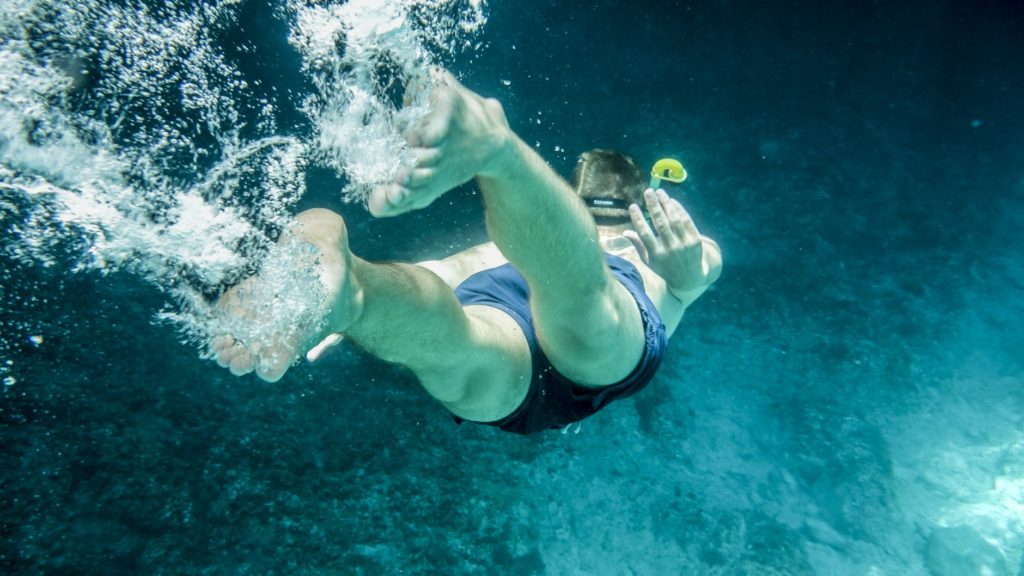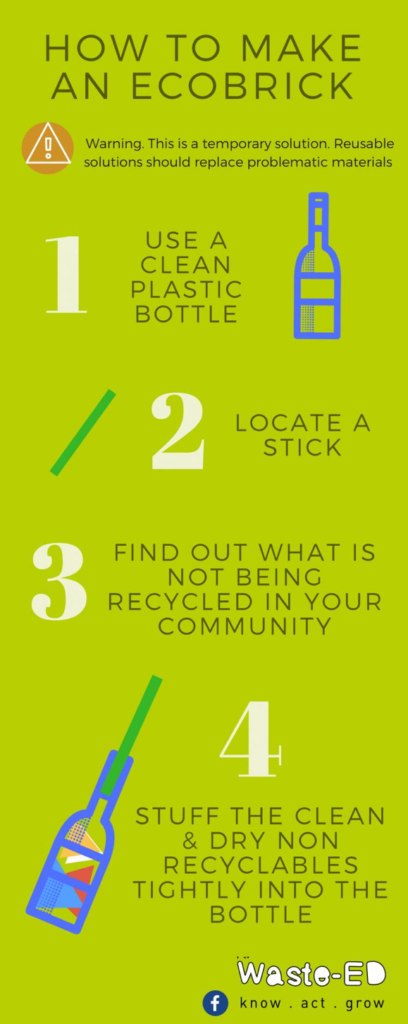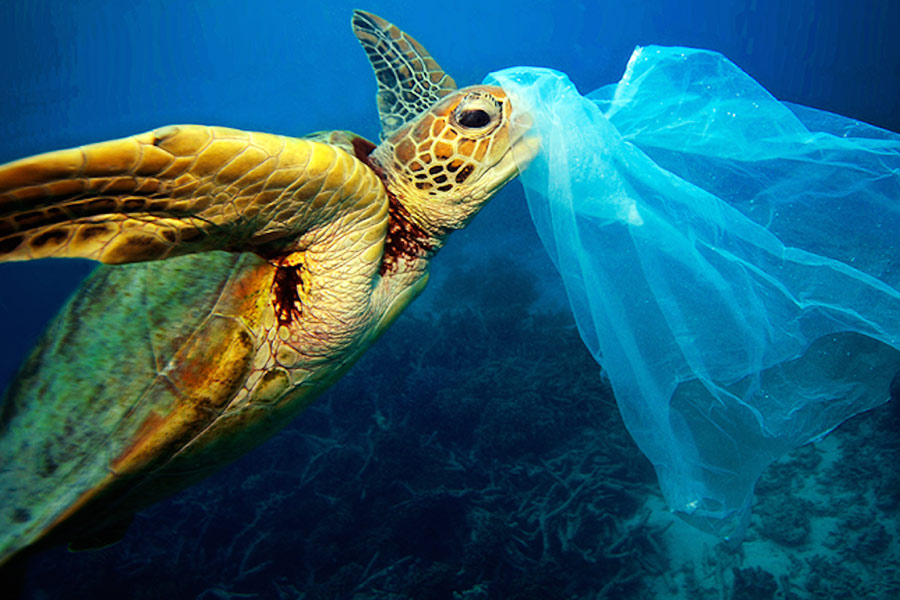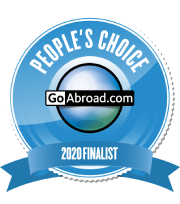Many of us are aware of the crisis our oceans and marine life are currently facing with marine conservation litter and plastic waste management, it’s a huge issue that is affecting us on a global scale and has in recent years started to get a lot more coverage.
Thinking about plastic waste management can become overwhelming particularly when you begin researching the topic and diving into the problems we face today. Often you are left feeling as though this is a lost cause with little you can do as an individual to help! What we have discovered is that it is incredible what an individual can do, especially when it becomes a group or collaborative effort, and so we wanted to share some of the impressive collaborative initiatives around tackling marine litter here in Cape Town. Let’s take a look at what one community in Cape Town have managed to do in just one year, collectively, it is quite amazing and will hopefully leave you feeling inspired.
A little bit of back story – Marine Biology in Cape Town
Dr. Nel is a Marine Scientist from South Africa who currently works as a Research Fellow at the University of Birmingham. While in South Africa, Holly spent three years working as Post-Doctoral Fellow at Rhodes University; studying the extent of microplastic contamination along the South African coast, in riverine tributaries and in the Sub-Antarctic. She wants to see all stakeholders work together to develop practical solutions for plastic pollution. As a result she joined the African Marine Waste Network team where her role was to liaise and coordinate with stakeholders to formulate an efficient (and effective) environmental plan – ultimately culminating in the Strategy for Marine Waste: A Guide to Action for Africa. The marine litter challenges are so large and urgent that no organisation or country can solve problems alone and so the network is to foster all forms of communication. Currently, she is looking at freshwater microplastic dynamics as part of a Leverhulme Trust Grant and her research with us at Evolve Abroad.
‘Dr. Nel’s work with the African Marine Waste Network explored the occurrence of microplastics along the South African coastline on a national scale, seeking to establish baseline data for future studies to compare their results. Water and sediment samples were taken at sixteen beaches and results showed there was a cause for concern: “… we found plastics at every single one of the beaches at really high concentrations and densities that were very similar to those that are found in the Northern hemisphere” says Dr Nel, “… this really showed the extent of plastics and microplastics in the marine environment – that it’s really not a localised issue anymore.”’ ‘Microplastics on the menu’ is one of her many articles on just how the environment can be affected by plastic: https://africanwastenetwork.org.za/news/microplastics-on-the-menu/
So we decided to team up with Dr. Nel to contribute towards her research, whilst providing a course in specialised marine biology to aspiring marine conservationists! One of the aspects of this course is focusing not just on the microplastic sampling and the situation here in Cape Town, but the efforts of the community in affecting positive change towards conserving their marine environment.
So let’s take a look at the people who are working to make an impact collectively here in South Africa…
Recently we were joined by a budding marine conservationist Corbin Lanker, from Ohio State University, who in his intensive marine litter course, got to see all of the people who are working to affect change on the marine environment. He joined our Specialized Marine Biology Course here in Cape Town to train on our microplastic research and sampling, and to learn about how community works within conservation efforts.
Corbin focused on where marine conservation touches on an inter- disciplinary science, and how conservation can be deeply affected by the mindset and action of its local community members.
How do you think secondary microplastics would get into the marine, freshwater and terrestrial environment?
• Poor waste management/lack of waste infrastructure.
• Littering and lack of education.
• Unsustainable use of plastic, throwaway way of thinking when it comes to waste.
• Once larger plastic gets into the environment they get broken down by both biotic and abiotic processes; for example wind, waves, UV radiation, algae growth, organism ingestion.
So alongside sampling for microplastics for our scientific research, Corbin also looked at how the community in Cape Town is working towards addressing these issues from a community standpoint.
First he connected with Sea The Bigger Picture in their efforts to tackle cleaning up their beaches, and creating awareness and education to the local communities. Sea The Bigger Picture started only 10 months ago, and in this short space of time, they have organised 13 beach cleans with over 800 participants and collected more than 300 bags of trash from the beaches here in Cape Town. A very impressive number.
This is a great example of what a community can achieve, in terms of trash collected but also in increasing the wider network they have been able to engage and provide education and awareness on what is happening to our oceans as we speak. Not only have they managed to collaborate with effective organisations here in cape Town to help up-cycle trash collected, but they have also reached over 1,000 learners on the local marine conservation and taken over 60 underprivileged children freediving to increase their enthusiasm on the ocean at their doorstep.

It was in fact free-diving that introduced a local community member, Shamier into the ocean environment. Shamier grew up on the Cape Flats, where positive role models can be hard to come by, and so he was inspired to start taking some of his local neighbourhood kids freediving. It was through this passion that lead him to meet his co-collaborators who together set up the NPO initiative Sea The Bigger Picture. For these guys, what started as a passion, turned into a project which has had a tremendous effect.

These guys started less than a year ago, and already they have engaged with a greater audience here in the community in Cape Town. And they are not the only ones; Oceano Reddentes started with a similar mission, by ‘saving the sea one piece of plastic at a time’.
Oceano Reddentes has a 4 pronged approach to tackling the issue of marine litter:
Education
- Teaching the youth through surf programs, Zero Waste to Landfill beach clean ups and school visits:
- In South Africa the previous generations’ mission was fighting against apartheid
- A vital mission for youth today is to help save the environment and to preserve it for future generations. This can only happen by educating the youth.
Research
- Research about plastic and sustainability: backing up our project with scientific research. Using the dirty dozen method for data collection at beach cleans ups
Building
- Use of the eco bricks created and collected to build houses for the homeless.
Growth
- To get vulnerable, marginalised and disadvantaged communities involved so that they can benefit from the production of eco bricks as well as the clean-up of plastic waste from communities. We aim to design a simple machine that shreds and packs eco bricks. We will make them quicker and faster, with machines in all areas.
- People are rewarded for recycling plastic = value per kg
This organisation was started by an amazing young girl here in Cape Town, called Jade Bothma. She started this when she was just 13, growing up with a love for the ocean and seeing that something needed to be done. Oceano Reddentes now joins Sea The Bigger Picture in their beach clean up efforts, often bringing hundreds of local residents to their cleans. Not only do these guys tackle cleaning up their beaches, but they collect data on the trash they collect using the Dirty Dozen method, coined by Dr. Peter Ryan of the University of Cape Town to record the top 12 items most commonly found on our beaches. This data helps to better understand the key trash items that are being found in our oceans, and allows for better action focusing on these items.
There are numerous organisations here in Cape Town that have started taking action on their own. Another which deserves a special mention is one that was started by a 9 year old Rocco with a passion to one day become a marine biologist, Rocco and the
have been focusing on cleaning up their local beach for a year now, and do a beach clean every single month. Rocco is dedicated to helping to make his world a better, cleaner place. And he most certainly is working towards that. What an inspiration these kids really are!
WaNT TO SAVE THE ENVIRONMENT AND HELP MAKE THE WORLD A BETTER, CLEANER PLACE.
So what happens to all this trash that gets collected? Well, on-site it often gets’ sorted into what is and isn’t recyclable, and of course there is then the problem with all the un-recyclable materials that we don’t want to end up in a landfill somewhere. Oceano Reddentes saw a need for the waste collected from these beache cleans to go somewhere, and be up-cycled. And this is where another local organisation called Waste-ED comes into play. Waste-ED implements waste to resource systems within communities that explores our journey to zero waste. They introduce simple technologies such as the eco-brick, to showcase how waste can be used and to try to effect change in how waste is treated in this area. This waste after all is what ends up being collected on these beache cleans, and so educating awareness around better waste management is a crucial part of solving this issue. They teach the skill of traditional clay building with Ecobricks, creating much needed, well insulated structures along the way.
What is an eco-brick? Well, it is something that anyone can do, anywhere, to make sure their waste doesn’t end up where we don’t want it. It can just be used for collecting and storing this, however many organisations have taken it to the next level to build artistic and even functional pieces. Waste-ED are currently working with the University of Stellenbosch on testing these materials for more of functional use around buildings here in South Africa, but for anyone at home who wants to do their part, why not start your own eco-brick initiative!
How to Make an Eco-Brick – you can do it at home, and anywhere.

Now, Corbin, who has come from Ohio State, from seeing all of this effective community collaboration here in Cape Town, and from his training on sampling microplastics, decided to see if he could assist with their waste management efforts in helping people to see how they can work towards zero-waste.
Corbin, alongside training from Waste-ED conducted an audit on a particular school here in Cape Town, on just how they manage their current waste. He talked to teachers, students, and local experts, and went about putting together a waste management project for the school that can be implemented by the community members.
Take a look at what he found out here
This is just a snapshot into the incredible efforts that are happening here with the community in Cape Town, but this isn’t the full story.
Stay tuned for Corbin and our marine team learning more from the experts in this field,
As he joins local marine biologists at Cape RADD, determines the findings of his scientific research for Dr. Holly Nel at the University of Birmingham, and talks with a prominent local environmental campaigner Hayley McLellan from the Two Oceans Aquarium on her campaign to ‘Re-Think the Bag’.


